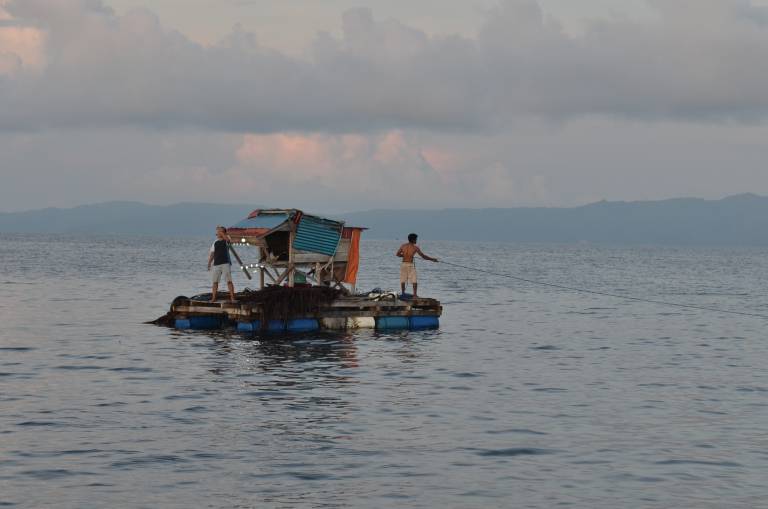UCL App to Improve Safety at Sea Nominated for Maritime Award
19 April 2023
Fishing boat stability app developed by UCL Mechanical Engineering Marine Research Group nominated for 2023 Maritime Safety Award.

A fishing boat stability app developed by UCL Mechanical Engineering Marine Research Group has been nominated for 2023 Maritime Safety Award. Presented by the Royal Institution of Naval Architects (RINA), the award recognises an individual, company or organisation which has made a significant technological contribution to improving maritime safety or the protection of the maritime environment.
According to a news article in 2021, accidents at sea in Indonesia during a seven-month period from December 2020 to June 2021 included 83 missing fishers, alongside 14 confirmed dead and 42 survivors. A research team led by researchers from University College London identified such a problem and developed a smartphone app, Kora Kora, collaboratively with Institut Teknologi Sepuluh Nopember (ITS), the University of Pattimura (UOP) and the Orela shipyard in Indonesia, to improve fishing boat stability.
With its name derived from the word “traditional canoe” from Bahasa Indonesia, the Kora Kora app aims to tackle fisher fatalities by allowing its users to understand their vessel’s stability. The app also provides simple guidance on how to improve stability at sea, if required. In a pilot study, the UCL team collaborated with academics and researchers in Indonesia to conduct extensive bench testing and full-scale trials in Ambon, Indonesia.
Dr Andrea Grech La Rosa, research associate at UCL Mechanical Engineering, was thrilled with the nomination:
““We couldn’t be happier to receive the nomination from RINA for the Maritime Safety Award, it is a big milestone for our team in addition to the very positive response from the local fishers we tested within Indonesia.”
Traditionally, vessel stability health is determined by a controlled experiment that involves moving large weights and observing the ship’s inclination. Such tests are less accessible to local fishers due to cost and other technical requirements. The effort to do incline experiments is also impractical for regular testing and cannot be done while the vessel is moving. The UCL team recognised an opportunity in the market, leveraging the wide adoption of smartphones in Indonesia and the accelerometer and gyroscope equipped in most of these devices.
Kora Kora works in three simple steps: first, it measures a vessel’s roll period (how quickly a vessel returns to its upright position while rolling). Then, a calculation will take place and the result displayed on the app using a traffic light system, indicating its stability level. With the app’s visual guidance, fishers could improve the vessel’s stability with suggested measures.
Unlike other smartphone apps, Kora Kora can be used without an internet or phone signal, this is particularly useful in countries where mobile coverage may be a challenge in coastal areas. With recent success in its sea trials, Dr Grech La Rosa is set to release Kora Kora for wider public use. “With more data collected from further trials in the future, we hope the Indonesian fishing sector will be able to take advantage of our innovation and reduce fishing risks.”
Together with Kora Kora’s project partners, the team hopes to secure funding to add more functionality to the app. One of the next phases of the mobile application will be to apply gamification principles to make the application more informative and engaging to users.
For more details about UCL Mechanical Engineering Marine Research Group’s research and the development of the Kora Kora app, please visit UCL Discovery.
 Close
Close

